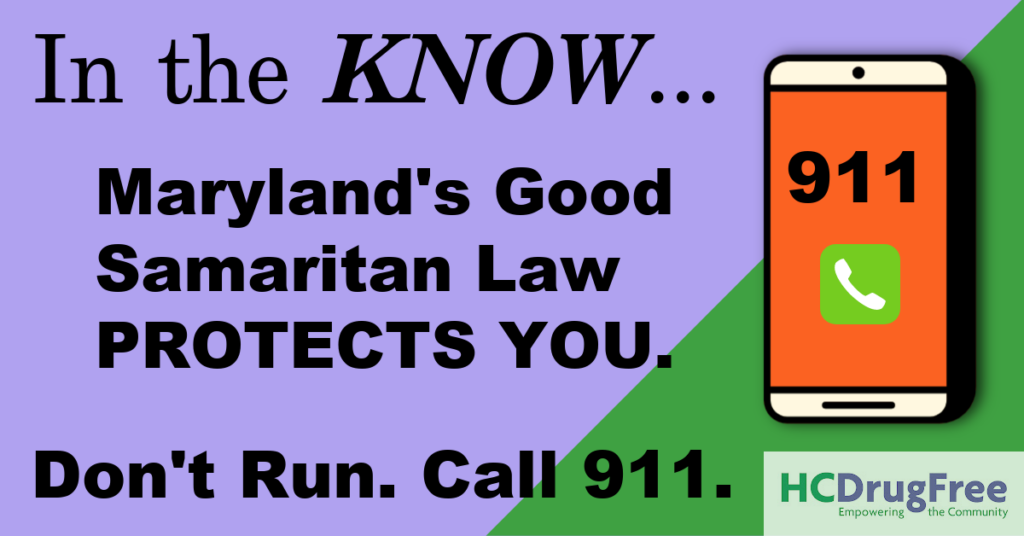
- Purpose: The Good Samaritan Law, also known as the Good Sam Law, aims to protect individuals who assist in emergency alcohol or drug-related overdoses without fear of arrest or prosecution.
- Immunity: People who seek medical assistance for a drug or alcohol-related medical emergency are immune from arrest or prosecution for possessing or using a controlled dangerous substance, drug paraphernalia, or providing alcohol to minors.
- Parole/Probation: Calling 911 in drug or alcohol-related medical emergency will not affect a person’s parole or probation status.
- Protection: The law also protects individuals experiencing the emergency medical overdose.
- Exclusions: The law does not protect those who witness the emergency but do not provide assistance, and it does not prevent arrest for open warrants or other crimes not covered under the law.
- Importance: Knowing about this law can encourage individuals to call for help in a drug or alcohol medical emergency, potentially saving lives.
- Maryland Law: In Maryland, helping someone in good faith during a drug or alcohol medical emergency grants immunity from criminal prosecution (Md. Ann. Code Art. CR § 1-210).
- Immunity from specified offenses: Immunity is provided for offenses such as administering dangerous substances, possession with intent to use paraphernalia, possession of controlled paraphernalia, minor possession of alcohol, obtaining alcohol for underage persons, and furnishing alcohol to underage persons.
- Limitations: The law does not protect against drug felonies or crimes not explicitly listed. Law enforcement can still conduct investigations and gather evidence.
- Spreading awareness: It is encouraged to spread the word about the Good Samaritan Law to former substance users, current users, and friends or families of users.
Resources
Maryland.gov: Good Samaritan Law
Opioid Operational Command Center: Maryland’s Good Samaritan Law




